Hebrew tattoos (קעקועים בעברית) are very unique and have their distinctive script and deep symbolism. Despite the traditional Jewish law that prohibits tattoos, the allure of Hebrew script as body art has grown, partly due to the influence of celebrities and the Kabbalah movement. Here are 11 inspirational Hebrew tattoos that will get your creative juice going.
1. Shalom Tattoo שלום
The word Shalom in traditional Hebrew means peace. but also as a simple way to say Hello.
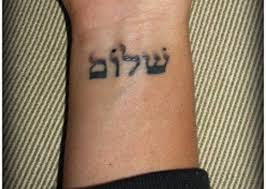
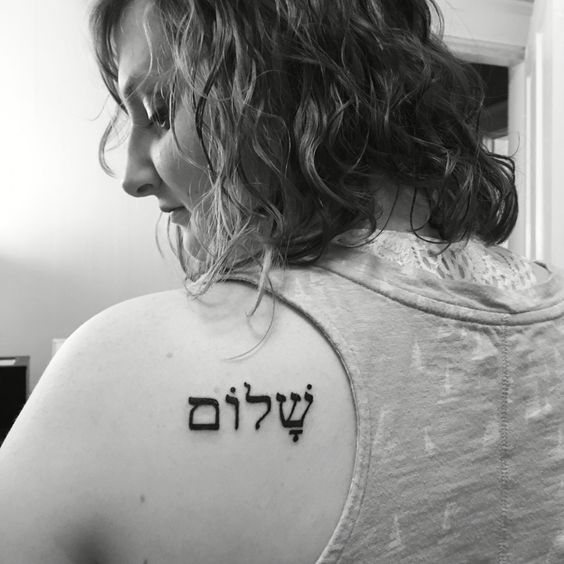
2. Hamsa Tattoo חמסה
The Hamsa is a symbol that holds deep spiritual meaning. It’s a protective sign that brings its owner happiness, luck, health, and good fortune.
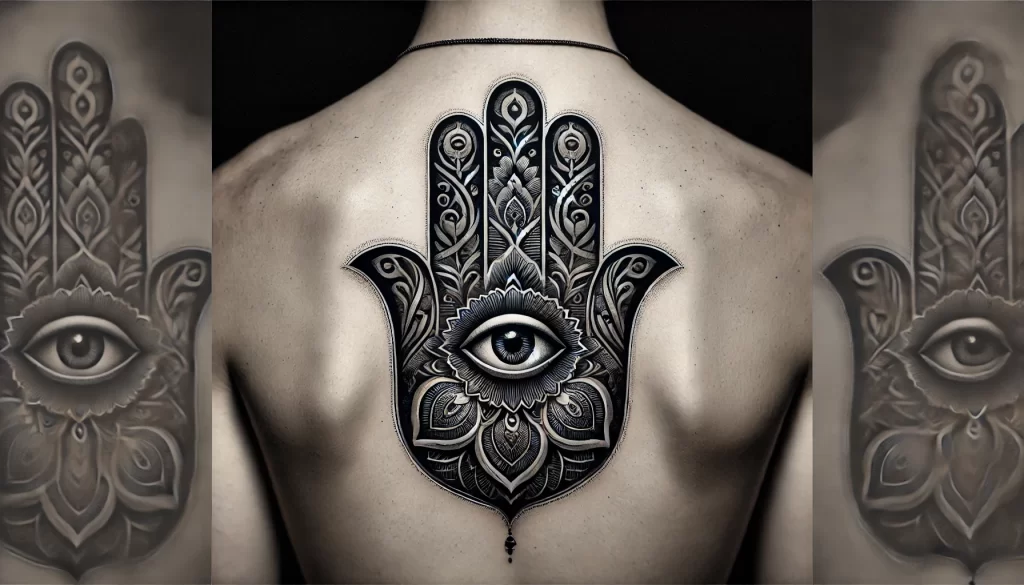
3. If I am not for myself, who will be for me? אם אין אני לי מי לי
The quote from Rabbi Hillel, “If I am not for myself, who will be for me?” is a famous saying from the Jewish ethical work Pirkei Avot (Ethics of the Fathers). This maxim is part of a larger teaching that continues, “If I am only for myself, what am I? And if not now, when?”.
The quote emphasizes the importance of self-advocacy and personal responsibility. It suggests that while it’s essential to care for oneself, this shouldn’t be to the exclusion of others. The balance between self-care and communal responsibility is highlighted, as well as the urgency of taking action in the present moment.
Rabbi Hillel’s words have been interpreted in various ways, but they often serve as a call to action for individuals to stand up for themselves while also considering their impact on the community and the world at large. (Source: Habad)

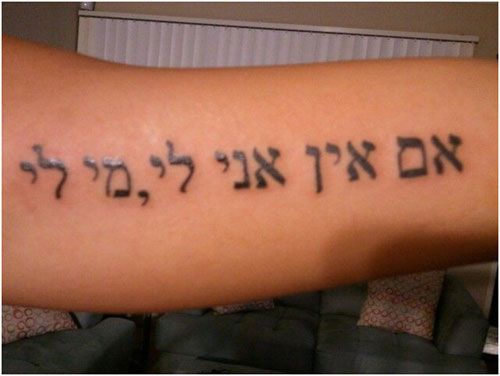
4. Chai Tattoo – חי
The Hebrew word Chai (חי) translates to “life” in English. It is a significant word in Jewish culture and religion, symbolizing the value of life and the hope that supports it. The word is composed of two Hebrew letters: Chet (ח) and Yud (י). Together, these letters have a numerical value of 18, as Chet is equivalent to 8 and Yud to 10. This association with the number 18 has made it customary in Jewish tradition to give charitable donations and gifts in multiples of 18, as a way of wishing the recipient a long and prosperous life123.
Chai is often used in jewelry, such as necklaces and bracelets, and is a popular symbol of Jewish identity.
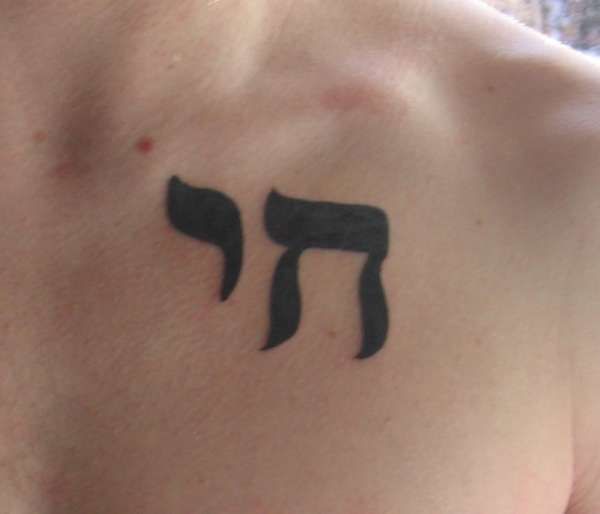
5. Vayehi Or – ויהי אור
The Hebrew phrase “ויהי אור” (Vayehi Or) translates to “And there was light” in English. It is famously known from the biblical account of creation in Genesis 1:3, where God commands the light to exist, and it does. This phrase symbolizes the creation of light and the beginning of life as per the biblical narrative.
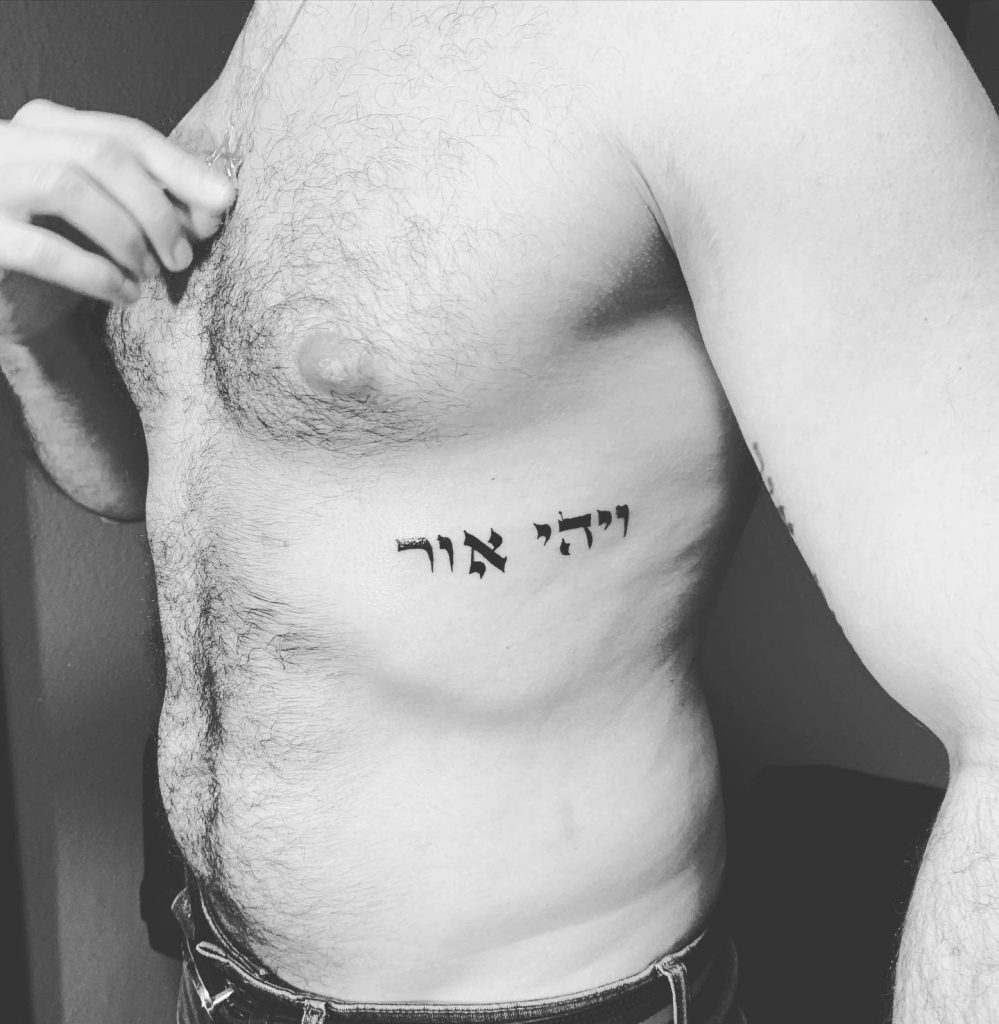
6. Ahava Tattoo – אַהֲבָה
The Hebrew word אַהֲבָה (Ahava) translates to “love” in English. It’s derived from the root word הב (hav), which means “to give.” This etymology suggests that love, according to Jewish tradition, is fundamentally about giving. Ahava encompasses a range of loves, including love of God, love of one’s neighbor, and romantic love, all of which are deeply rooted in the act of giving and the selflessness it entails.
In a broader sense, Ahava represents a profound and unconditional affection that goes beyond superficial desires, forming the foundation of relationships. It’s a concept that captures the essence of deep, genuine care and affection one shows to another. Additionally, the Jewish mystics note an interesting connection between Ahava (love) and Echad (one), as both words share the numerical value of 13 in Hebrew, symbolizing unity and oneness as the aspiration of love.
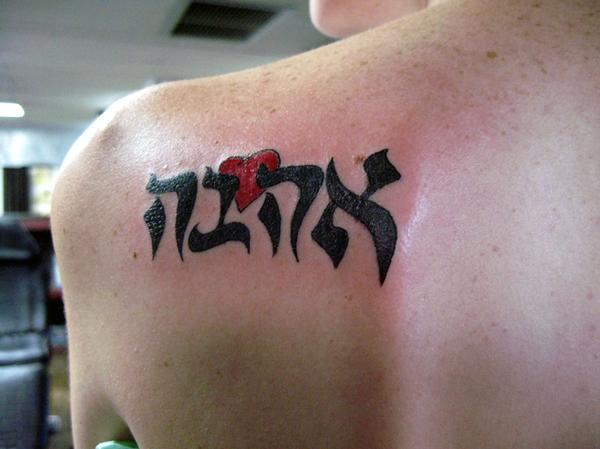
7. Ve’ahavta l’re’acha kamocha – ואהבת לרעך כמוך
The phrase ואהבת לרעך כמוך /(Ve’ahavta l’re’acha kamocha) /love thy neighbor as thyself is a fundamental commandment in Judaism, which translates to “Love your neighbor as yourself.” This commandment is found in the book of Leviticus (19:18) and is considered by many Jewish sages as a cornerstone of ethical and moral conduct.
Rabbi Akiva, a prominent rabbi in early Jewish history, famously stated that this commandment is a great principle of the Torah. It encapsulates the idea that one should treat others with the same respect, care, and kindness that they would wish for themselves. The commandment encourages empathy and compassion, urging individuals to consider the feelings and well-being of others as they would their own.
The phrase also implies a sense of communal responsibility, where each person’s actions contribute to the welfare of the community. It’s a call to act with integrity and fairness, promoting a society built on mutual respect and love.


8. Lo Eira Ra Ki Ata Imadi – לא אירא רע כי אתה עימדי
The phrase לא אירא רע כי אתה עימדי translates to “I will fear no evil, for You are with me” and is from Psalm 23:4. This verse is part of a larger passage known as “The Lord is My Shepherd” or “Mizmor L’David” in Hebrew. It expresses a deep trust in God’s protection and guidance, even in the darkest and most difficult times, metaphorically referred to as “the valley of the shadow of death.” The psalmist, King David, conveys a sense of comfort and reassurance, knowing that God’s presence is a constant source of support, akin to a shepherd’s rod and staff that guide and protect the sheep.
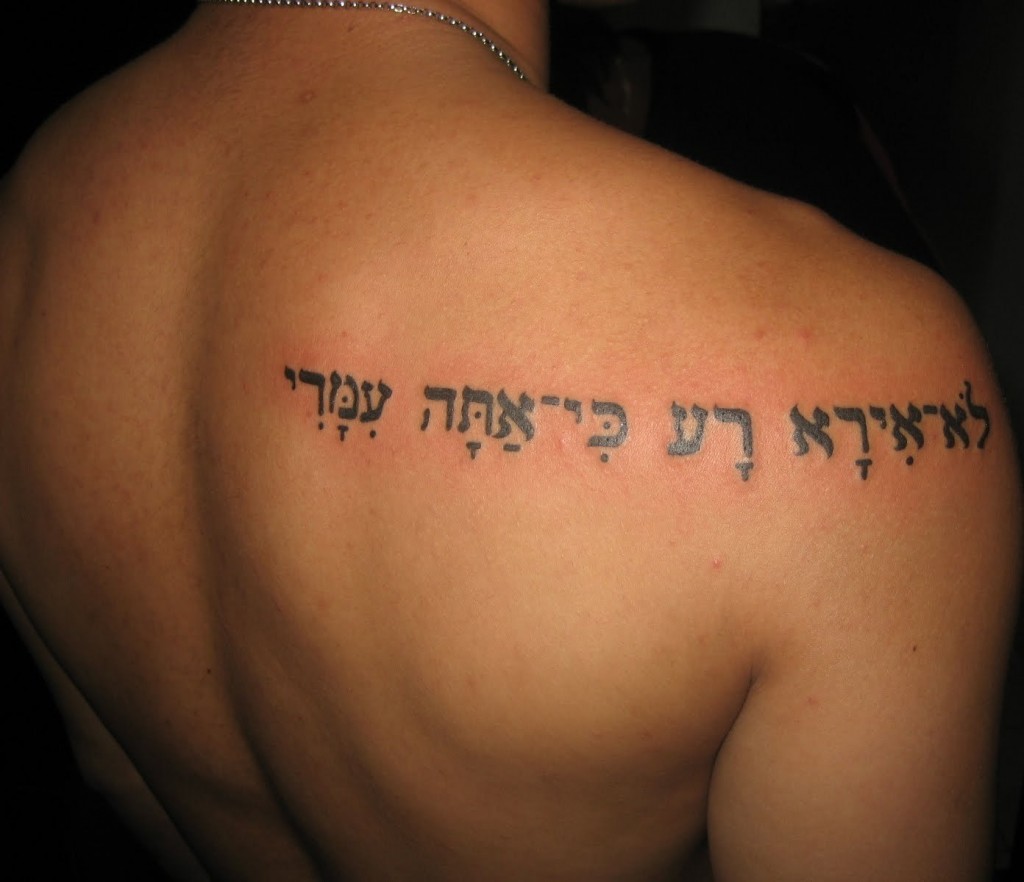
9.YEHOVH – יהוה
The term יהוה (YEHOVH ) is one of the names of God in Judaism and Christianity. It is considered the proper, personal name of God. The pronunciation and exact meaning of יהוה have been subjects of great discussion and reverence. Traditionally, it is not vocalized due to the sacredness of the name. When reading aloud, Jews often use the term אֲדֹנָי (Adonai), meaning “my Lord,” or הַשֵּׁם (HaShem), meaning “the Name,” in place of יהוה.
The name is derived from the Hebrew verb היה (hayah), meaning “to be,” and reflects the concept of God’s existence being eternal and self-sustaining. It implies that God is not bound by time or space, encompassing past, present, and future. This name is used primarily in contexts where God is interacting with His people, such as when He appeared to Moses in the burning bush or when giving life to Adam2.
Due to its sanctity, the name יהוה is treated with great respect and is not spoken casually. In scholarly and religious texts, it is often written with the consonants YHVH, and in English translations of the Bible, it appears as “LORD” in all capital letters to distinguish it from other titles for God.
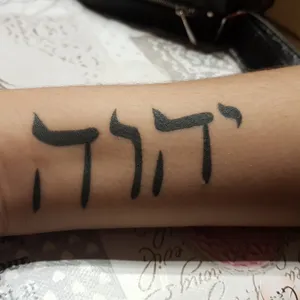
10. Yeshua – ישוע
The word ישוע (Yeshua) is a Hebrew name which translates to “Joshua” in English. It is derived from the Biblical Hebrew name יהושע (Yehoshua), which means “Yahweh is salvation” or “Yahweh saves/rescues”. In the context of Christianity, Yeshua is often associated with Jesus of Nazareth, as it is the original Hebrew form of the name Jesus.

Dead Sea Tattoo
Kinda out there, but very unique idea. The dead sea is a very popular destination and considered the lowest point on planet earth. Also a lot of interesting history there.

Getting an Hebrew tattoo?
Hebrew tattoos are more than just body art; they are a reflection of one’s beliefs, values, and connections. Whether it’s a single word or a passage from ancient texts, these tattoos speak volumes about the wearer’s identity and spiritual journey.
Remember, if you’re considering a Hebrew tattoo, ensure you understand the meaning and consult with a knowledgeable source to get the script right. After all, a tattoo is for life!

